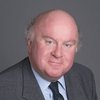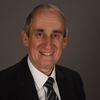Sir Isaac Newton: A Genius And/Or A Flawed Character?
Webinar
Never miss a recording again; click here subscribe to Z/Yen's YouTube account .
Background:
Sir Isaac Newton was one of England’s greatest mathematicians, physicists and astronomer and theologian as well- a veritable polymath! Yet, he was also a flawed character, his private papers revealed an unhealthy level of interest in conduct of experiments in Alchemy. Through these activities, where he nearly fell foul of the legal authorities in the form of the Lord Chancellor, Lord Jeffries at the time, when conducting Alchemy experiments was a criminal offence. At about the same time he had a notorious feud with Robert Hooke, another polymath and scientific rival. Robert Hooke was Gresham Professor of Geometry at Gresham College, a natural philosopher and architect. This lecture will examine the flawed aspects of Isaac Newton’s character in the context of these two less than glorious incidents in his long life and discuss how his overall achievement should be judged as a result of them.
Speaker:
Robert McDowall spent his career in banking and finance in the City of London, working for a number of institutions including Merrill Lynch, Pru-Bache and Singer and Friedlander and retains a number of consultancies and directorships in the finance and technology sectors. He has authored, co-authored and presented a number of research papers on finance and technology. He is a former President of the Folklore Society, an Academic Charity, and currently serves on the Finance & Investment Committee of the Royal Anthropological Institute and chairs its Fund Raising Committee.
Bob lives in Alderney in the Channel Islands. He is a former member of the States of Alderney (2013-2106) where he chaired the Policy and Finance Committee and the Finance sub-committee. He currently chairs Conservatives Abroad in the Channel Islands and sits on the Board of Conservatives Abroad.
Bob is a Liveryman and former Member of the Court of the The Tin Plate alias Wireworkers Company, and a Member of the Gresham Society. He has a degree in law (LLB) from University College London and is a Fellow of the Royal Anthropological Institute.



